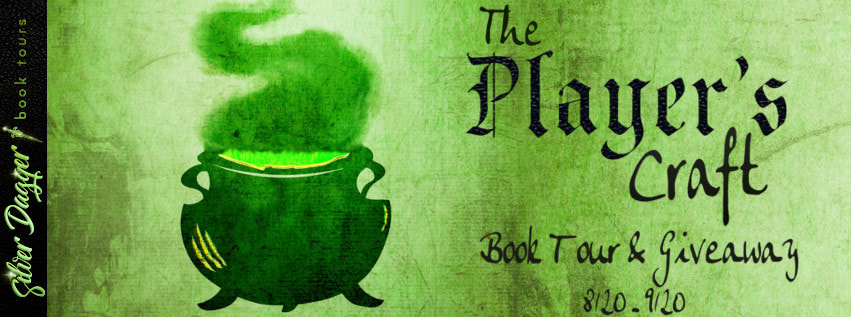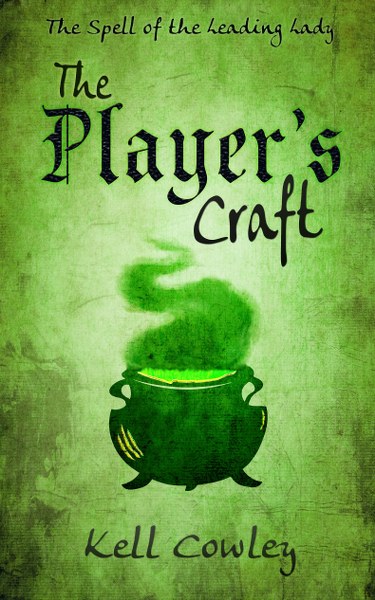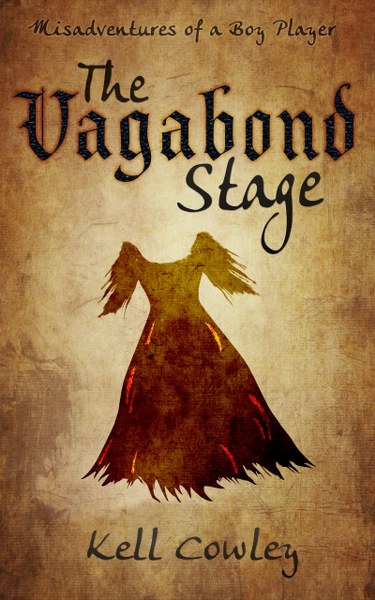The West Country, England, 1599
Timony is a born actor before he even knows the meaning of the word. A restless farmhand with a yearning for the wider world, he is already seeking escape when he catches his first glimpse of a band of travelling players. His dramatic temperament makes an impression on the playwright, Makaydees, who takes him on as his new apprentice to enact the female roles. And Timony soon learns there will be worse things to brave than stepping on stage in a frock and wig.
At a time when the law considers unlicensed actors to be no better than criminals, the players live in constant threat of arrest and are forced to travel in the same channels as more dangerous outlaws. While Timony is still struggling with his role as the girl in the player’s gang, he finds himself propelled on a journey through the Elizabethan underworld. After the troupe becomes embroiled with one of the most wanted highwayman in the land, Timony must learn to act for his life on a precarious road where disguise and deception may be his only means of survival.
The Vagabond Stage is a queer picaresque adventure novel exploring transgender identities in Tudor times, aimed at ages fourteen and up.
Goodreads * Amazon
The titles of both The Vagabond Stage and The Player’s Craft have a duel meaning, in that they reflect something about the main character Timony’s journey and also hint towards each novels’ wider themes. The Vagabond Stage follows an unlicensed theatre company on their journey through the Elizabethan underworld. It is a time when actors without patrons were seen as no better than idle beggars. They moved in the same channels as dangerous criminals and could be arrested and placed in a correction house just for putting on plays. For Timony, the troupe’s new young apprentice who’s been hired to enact the female roles, this is the penniless artist stage of his career, where performing is a means of survival.
The Player’s Craft is set two years later. Between books, Timony has become very proficient in playing the leading ladies. Its title reflects that improved stagecraft and growing ambition to be recognised as a serious thespian, no longer the apprentice but the driving force behind a bid to earn a wealthy patron. The second meaning to the ‘craft’ part of the title refers to the fears of witchcraft in the Elizabethan era. Over the course of the story, Timony learns how women must hide their ambitions for fear of being demonised and punished for them. All characters in this novel are putting on pretences, not just the actual players.
What literary pilgrimages have you gone on?
In my third year of my writing degree, I was set a contexture project to explore and set a piece of work in a new place that I travelled to. So I decided to go backpacking through Scotland, a country on the doorstep of northern England where I live. I travelled to many different Scottish cities, islands and remote locations, studying the countries culture and folklore. One of the places that I visited was a fortress castle in the Borderlands called the Hermitage. It was such a striking piece of masonry. I stayed there for a whole day, just absorbing how lonely and forbidding the castle was.
The Hermitage ended up being my inspiration for the main setting of The Player’s Craft. The Quarm castle I describe in my story has a different shape and function to the fort I visited. It has its own invented history and comes with a surrounding hamlet. But I wanted the castle in my novel to have the same exact feel. For me, that’s the main purpose of visiting a location for literary purposes. To soak up its atmosphere and then conjure it up in your own writing with lashings of imagination mixed in. It’s not about copying every detail of a given setting. It’s a matter of blending authenticity with creativity.
What’s the most difficult thing about writing characters of other genders?
I don’t think it’s any more difficult to write characters of other gender identities, than it is difficult to write characters of different ages, body types, or cultural backgrounds to me. In all cases, you must use a mixture of research, observation, and empathy to depict characters with a different lived experience to yourself. I don't think writers should see people of the opposite gender, or trans/non-binary people, as alien beings that they can’t possibly relate to. Always put yourself in the character’s shoes, rather than othering them.
In The Vagabond Stage my main character Timony is what a modern readership might term as ‘gender questioning’, an insecure and effeminate farm boy, who goes through a personal awakening about their identity and sexuality when they get hired to play the female roles in a travelling theatre company. In its sequel novel, The Player’s Craft, Timony is more what I’d describe as ‘gender fluid’, using their acting talent and androgynous looks to present as male and female at different times in the story. When talking about these novels, I’ll often use this contemporary terminology to describe Timony’s gender identity. I will use a mixture of ‘he’, ‘she’ and ‘they’ pronouns depending on how the character identifies as the story progresses. But my novel a set in the Elizabethan age. So, within the story world, these terms did not yet exist. Genderqueer people have existed throughout history, but as a writer I have to express Timony’s self-discovery without the use of modern labels.
Approaching the tavern, I could see its inn yard was crammed from entrance to rear. On any usual night when the alehouse was this packed it would also be raucous with voices. But this evening it was eerily hushed. Something was going on here and it was so rare for anything to happen in the town of No End. A local constable was stationed at the inn’s arched entrance, but even he was proving a poor watchman. His back was turned away from the street, his eyes fixed upon whatever was taking place within the tavern walls.
So, he took no notice as I slipped into the rear ranks of the crowd.
I was too small to see above the heads or through the huddling bodies in front of me. But the one advantage of my puny stature was that nobody minded if I snuck on ahead. I wouldn’t be blocking any man’s view and in my dark raiment I was like a little shadow flitting through the throng. The crowd’s focus was held by something else. Or rather…someone. I could just about hear a voice from the far side of the yard. A fair speaker who had everyone hushed.
Their words began to reach my straining ears –
“Fire and slaughters now behind me, into these woods I’ll fly.
At last I’ll pray and see the day retreat from where I lie.
Oh, could it be I’ve finally found a place where I might die?”
It sounded like a girl. I could hardly believe it at first. She didn’t talk like any maid I’d known from the village, nor had I ever seen a woman being given leave to speak at such a gathering. Her voice rang out clear as a bell, but was prettily undercut by her whimpering breaths. And for some strange reason, this girl spoke everything in rhyme. Her words created music in the air. Without yet having a glimpse of her, I imagined this girl must be a witch with a charmed tongue who’d cast a silencing spell over the mob.
The crowd was thicker the closer I drew to her voice. In the sweaty cram of arms and shoulders, I mouthed one of my mother’s harsher curses and then sank to my knees to crawl through the maze of legs that now lay between me and the farthest wall. The people who stood over me hissed at the disturbance around their ankles, stamping on me as I snaked over the cobbles on my belly. I bit my lip, absorbing their kicks and trying not to make a sound as they winded me. A few fresh bruises later, I brushed aside a long-mottled skirt in my path and I finally came up for air. And that was the moment I saw her.
The girl on the stage wore a red dress, its skirts unfurled around her like the petals of a crushed flower. I had never seen clothing so red before. The rustic dyes of our local tailors would only yield the dullest brown and grey hues. And the dress wasn’t all that made this girl beguiling. Her long black hair was thick as a horse’s mane and her skin was so milk pale you would think she’d never stood a day beneath the sun.
I would’ve called the girl pretty, but the word wasn’t enough. She wasn’t pretty like the freckled milkmaid who had been promised as a wife to my brother Flan on his sixteenth birthday. This girl was impish and peculiar. She was such a shock to my senses that I could only see her as beautiful and I was right away in love.
I let go a sigh as I stared. I’d always wondered what falling in love would feel like. In this town, love was another superstition that my pa spoke of with his customary peasant wariness – like it was a sickness that needed draining with leeches. In my usual habit of impudence, I’d secretly been looking for love in the face of every young maid in the parish. But I’d been searching for so long without feeling any of its supposed tingles I’d begun to think the condition must be a fanciful myth after all.
Now I knew different. Now I felt it.
My heart throbbed, my skin prickled and my loins stirred in a way my mother would have called damnable. There was just one problem.
The girl appeared to be dying.
Excerpt 2 / The Player’s Craft
Makaydees sat on a stool, his arms crossed over his chest. I turned back to Rum, who had plainly conspired to lead me into this ambush, baiting me with false promises. He merely shrugged, forcing a rough kiss to my cheek before he bounded away.
I glanced back at my master and with one look I knew I wouldn’t be stepping off this wagon again tonight. His stare was stern, but there was a weariness about him too. So many lines and shadows under his eyes. I wondered if I’d put them there.
He rose to his feet, gesturing to the footstool.
“Don’t start. Just sit down.”
I blinked. “What for?”
“Your hair looks like a bird’s nest.”
I ran a hand through my scraggly curls and it took a moment to pull my fingers loose again. When they came free, they brought with them a cluster of straw and twigs. Makaydees took a comb from his pocket and stroked its bristles like he were testing the sharpness of a blade. I shuffled over to the dreaded seat and he set about raking the comb through my long locks, ripping apart its tangles and threatening to pull its roots from my scalp.
“If I had a wig…” I hissed, “I wouldn’t have to go through this torture every time. Real actors wear wigs.”
“And what is a real actor, pray?”
“An actor who treads the boards of playhouses and palaces instead of roadsides. An actor who wears dresses with farthingales and furbelows, ruffs and puff sleeves. An actor who has fame, riches and roles that’ll be known through the ages.”
Tears stung my eyes as I took another stroke of the comb. My master shook his head, snorting in derision.
“Frills, frippery and empty poetry. Players like that are nothing more than dolls for the rich to set dancing. Their only talent is for sycophancy, making names for themselves by licking up spittle. For whatever station it might earn them, their plays are worthless. There is no blood in licensed theatre these days. It all must be tamed to suit the sensibilities of the Puritans and Privy Council.”
“You don’t know that! Tis over a decade gone since you left London. And the word on the road has it that the city is now home to the best actors and playwrights England has ever seen.” I twisted my neck to meet his stare. “Is that why you won’t go back? Because you don’t want to face the competition?”
I held the tears in my eyes, letting them sparkle prettily before I blinked and felt them slide down my cheeks.
“Don’t take on so!” He clasped my chin, turning me away. “I admit our repertoire has grown a little stale. But that’s no excuse to go inventing new endings, particularly when you fail to find the words to finish them. No, what I need is time and peace to write a new play. And not just any play. The time has finally come for me to write my masterpiece before my mind dulls with age and my back can no longer hunch over my parchment.”
“Then I want to write it with you.”
At this suggestion, he wrenched another knotted clump of my curls apart, forcing me to swallow down a yelp. “You want too much. You ought to be grateful that my quill favours the damsel parts. No city playhouse would allow its youngest actor to take the leading roles like I do. And besides, I have seen your scribblings. You’re a mediocre diarist at best. No poet. Certainly no playwright. Don’t be insulted, dear heart. You’re not without your talents.”
“My girls never get to speak what they want to say.” I screwed up my nose, turning to face him again. “Why can’t they be the heroes who live in the end?”
“Because nobody lives in the end. Not even heroes. I won’t sell our audiences a fairytale. I just like to think that your girls lend a little grace to our collective certain doom.”
He ceased his brushing and stared down pensively at his comb, now twined with the threads of my abused curls. He tapped my shoulder and nodded to the ladder in the wagon’s corner leading up to a poky crawl space where I made my bed.
“Go,” he ordered. “Get your beauty sleep.”
It was early evening. I hadn’t supped and stood no chance of sleeping. But I knew this was the punishment I’d brought on myself by changing his play. So I climbed the ladder and burrowed under my blanket. After a moment I heard the hiss of Makaydees pinching out the lantern flame on the level below, then a creak from the boards as he sat to guard the wagon door. He always took up this position on these nights that he kept me confined. As if a change of routine would deprive my stubborn master of his comfort.
Just as no change was robbing me of mine.












Comments
Post a Comment